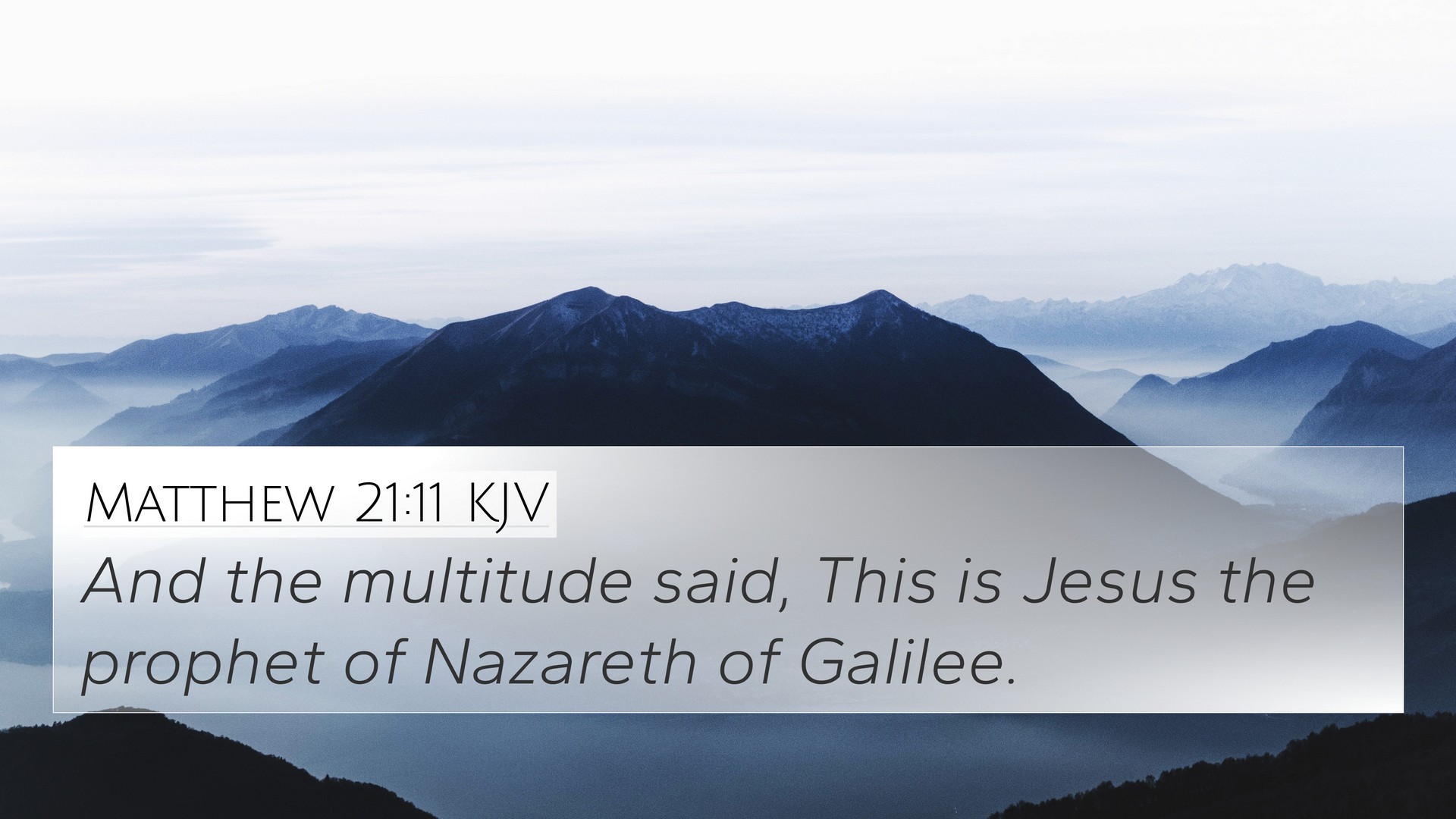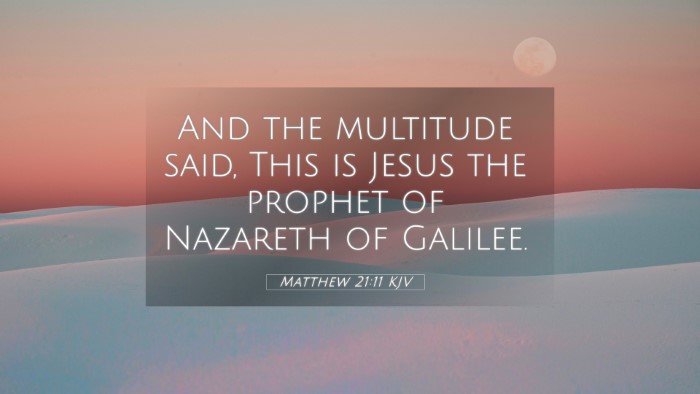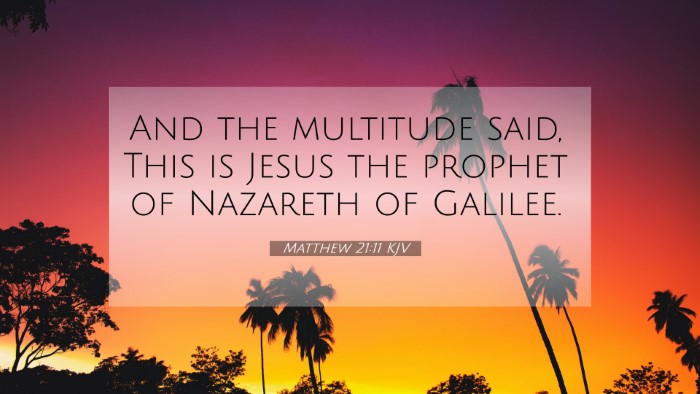This section features a detailed cross-reference designed to enrich your understanding of the Scriptures.
Below, you will find carefully selected verses that echo the themes and teachings related to Matthew 21:11 KJV. Click on any image to explore detailed analyses of related Bible verses and uncover deeper theological insights.
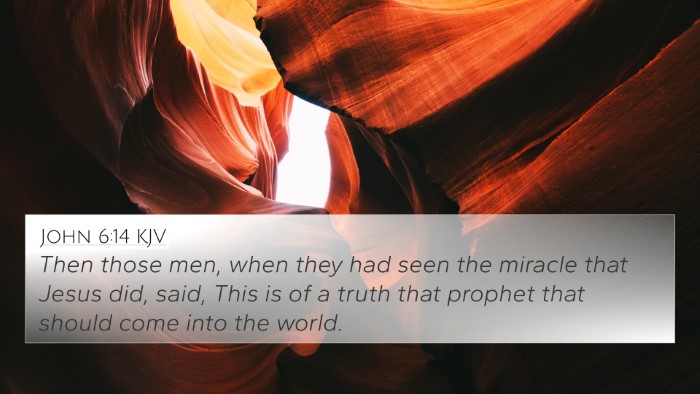 John 6:14 (KJV) »
John 6:14 (KJV) »
Then those men, when they had seen the miracle that Jesus did, said, This is of a truth that prophet that should come into the world.
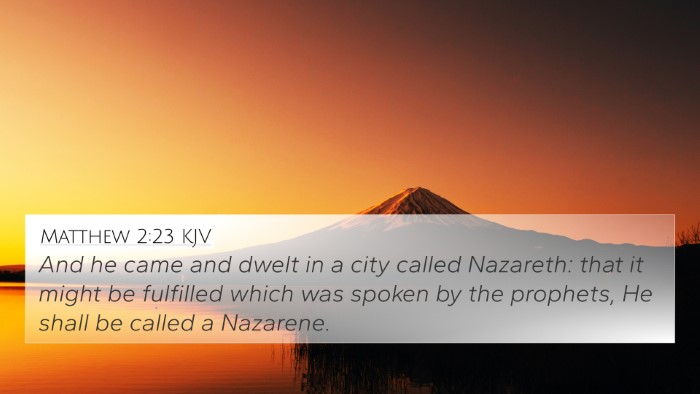 Matthew 2:23 (KJV) »
Matthew 2:23 (KJV) »
And he came and dwelt in a city called Nazareth: that it might be fulfilled which was spoken by the prophets, He shall be called a Nazarene.
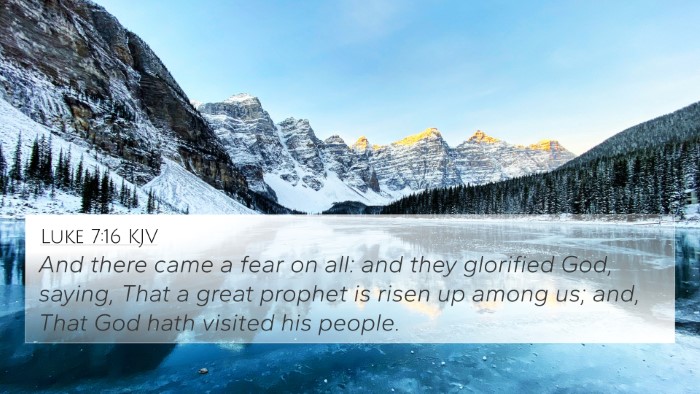 Luke 7:16 (KJV) »
Luke 7:16 (KJV) »
And there came a fear on all: and they glorified God, saying, That a great prophet is risen up among us; and, That God hath visited his people.
 John 9:17 (KJV) »
John 9:17 (KJV) »
They say unto the blind man again, What sayest thou of him, that he hath opened thine eyes? He said, He is a prophet.
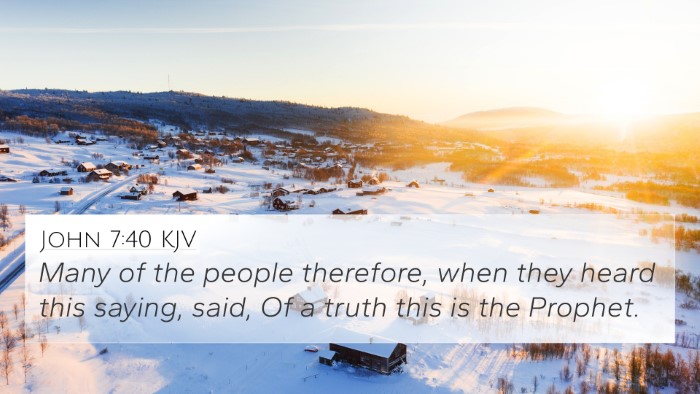 John 7:40 (KJV) »
John 7:40 (KJV) »
Many of the people therefore, when they heard this saying, said, Of a truth this is the Prophet.
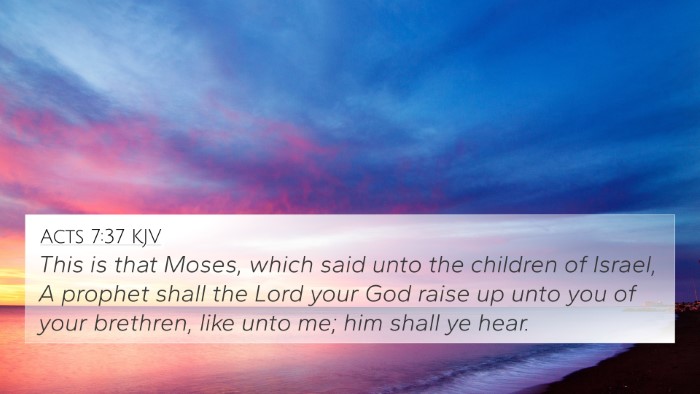 Acts 7:37 (KJV) »
Acts 7:37 (KJV) »
This is that Moses, which said unto the children of Israel, A prophet shall the Lord your God raise up unto you of your brethren, like unto me; him shall ye hear.
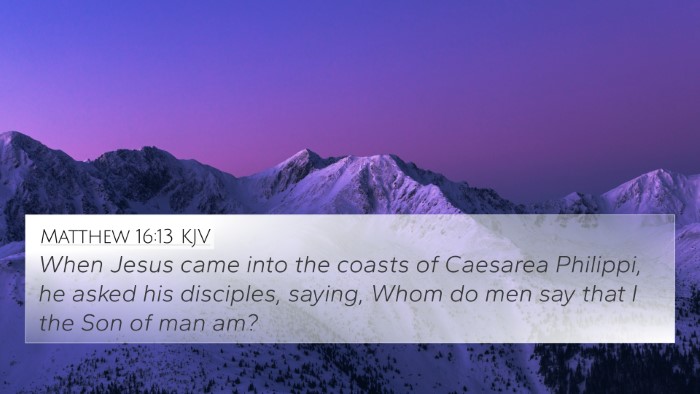 Matthew 16:13 (KJV) »
Matthew 16:13 (KJV) »
When Jesus came into the coasts of Caesarea Philippi, he asked his disciples, saying, Whom do men say that I the Son of man am?
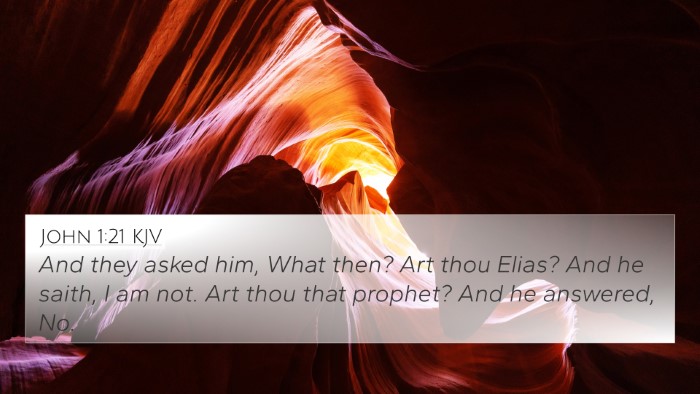 John 1:21 (KJV) »
John 1:21 (KJV) »
And they asked him, What then? Art thou Elias? And he saith, I am not. Art thou that prophet? And he answered, No.
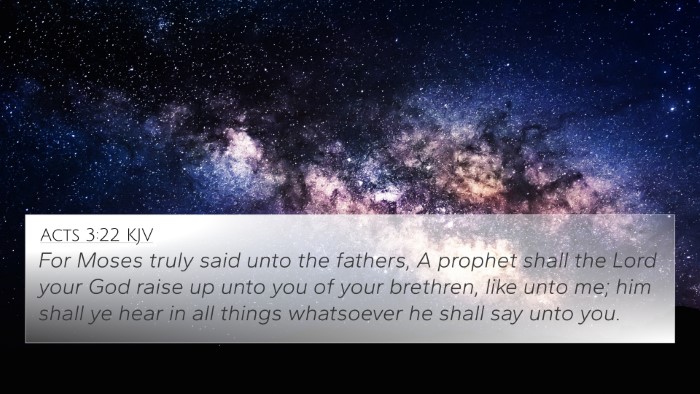 Acts 3:22 (KJV) »
Acts 3:22 (KJV) »
For Moses truly said unto the fathers, A prophet shall the Lord your God raise up unto you of your brethren, like unto me; him shall ye hear in all things whatsoever he shall say unto you.
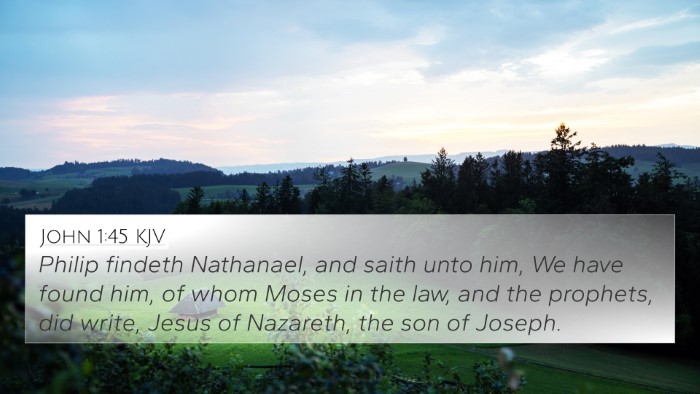 John 1:45 (KJV) »
John 1:45 (KJV) »
Philip findeth Nathanael, and saith unto him, We have found him, of whom Moses in the law, and the prophets, did write, Jesus of Nazareth, the son of Joseph.
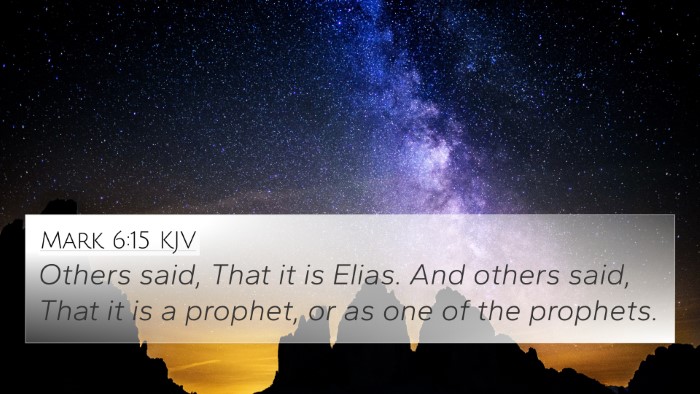 Mark 6:15 (KJV) »
Mark 6:15 (KJV) »
Others said, That it is Elias. And others said, That it is a prophet, or as one of the prophets.
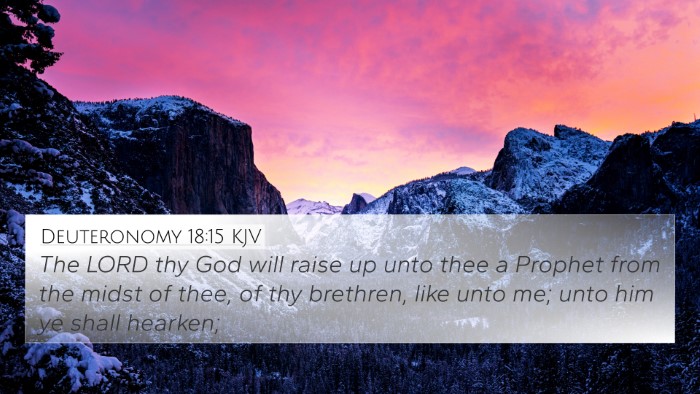 Deuteronomy 18:15 (KJV) »
Deuteronomy 18:15 (KJV) »
The LORD thy God will raise up unto thee a Prophet from the midst of thee, of thy brethren, like unto me; unto him ye shall hearken;
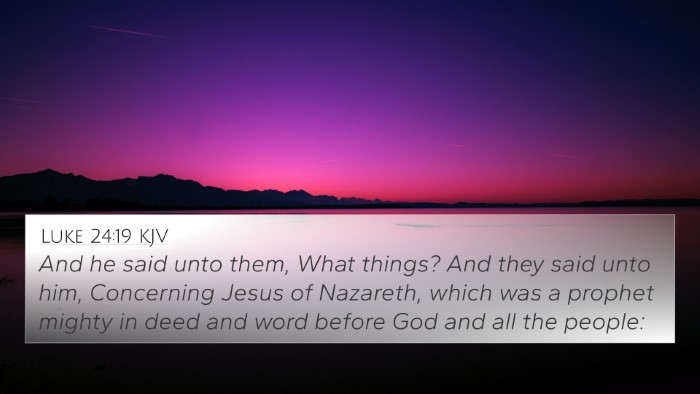 Luke 24:19 (KJV) »
Luke 24:19 (KJV) »
And he said unto them, What things? And they said unto him, Concerning Jesus of Nazareth, which was a prophet mighty in deed and word before God and all the people:
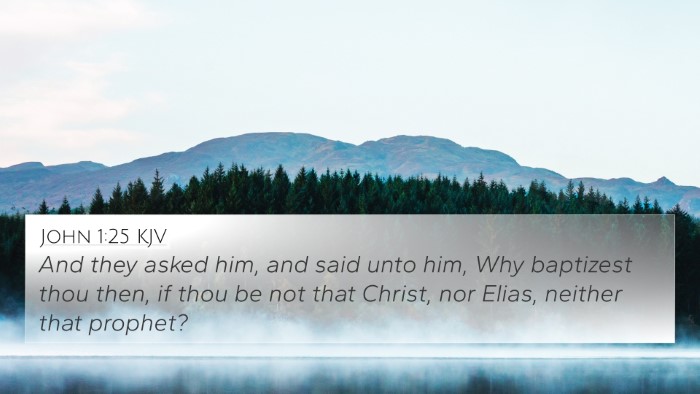 John 1:25 (KJV) »
John 1:25 (KJV) »
And they asked him, and said unto him, Why baptizest thou then, if thou be not that Christ, nor Elias, neither that prophet?
 Luke 7:39 (KJV) »
Luke 7:39 (KJV) »
Now when the Pharisee which had bidden him saw it, he spake within himself, saying, This man, if he were a prophet, would have known who and what manner of woman this is that toucheth him: for she is a sinner.
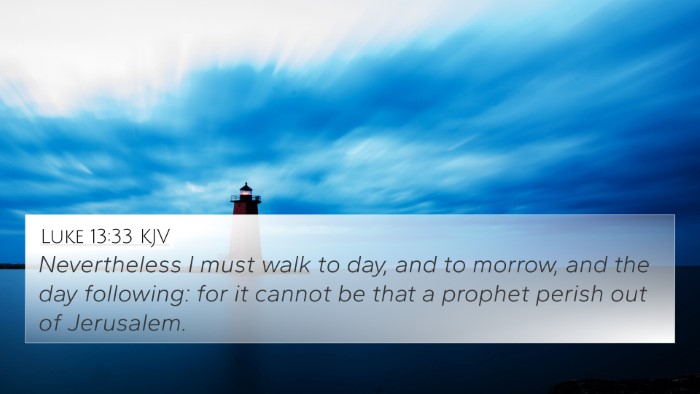 Luke 13:33 (KJV) »
Luke 13:33 (KJV) »
Nevertheless I must walk to day, and to morrow, and the day following: for it cannot be that a prophet perish out of Jerusalem.
